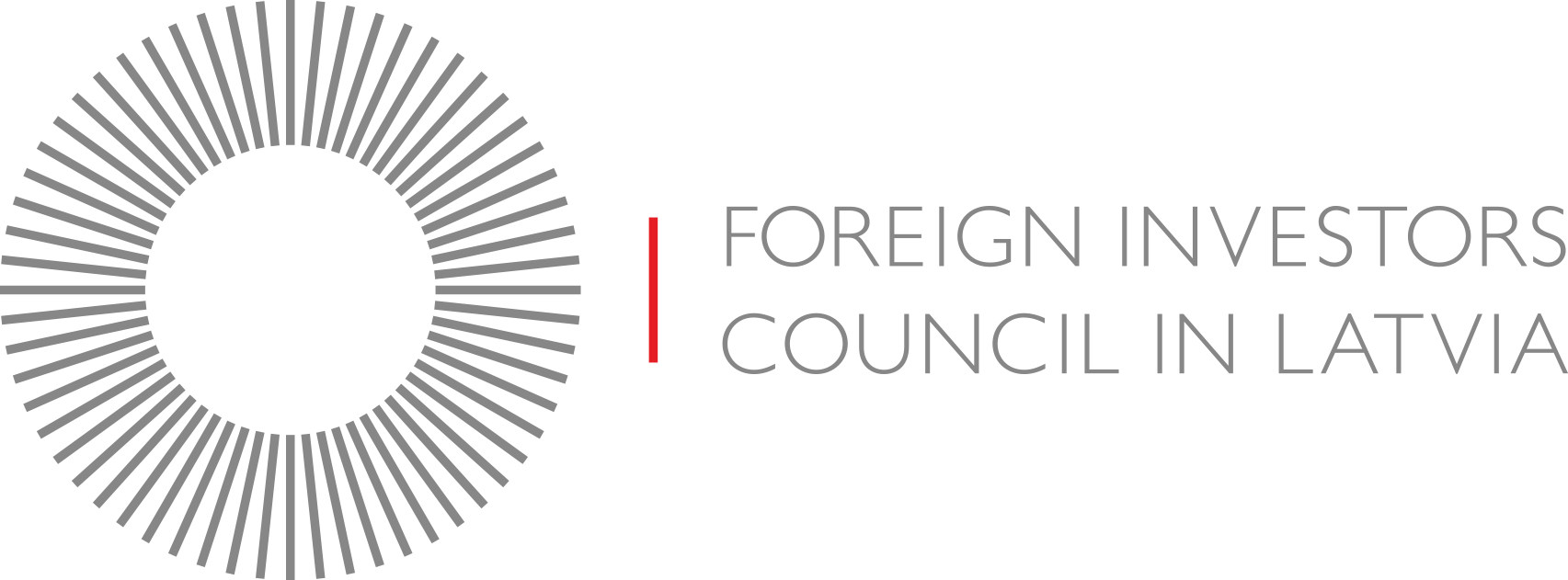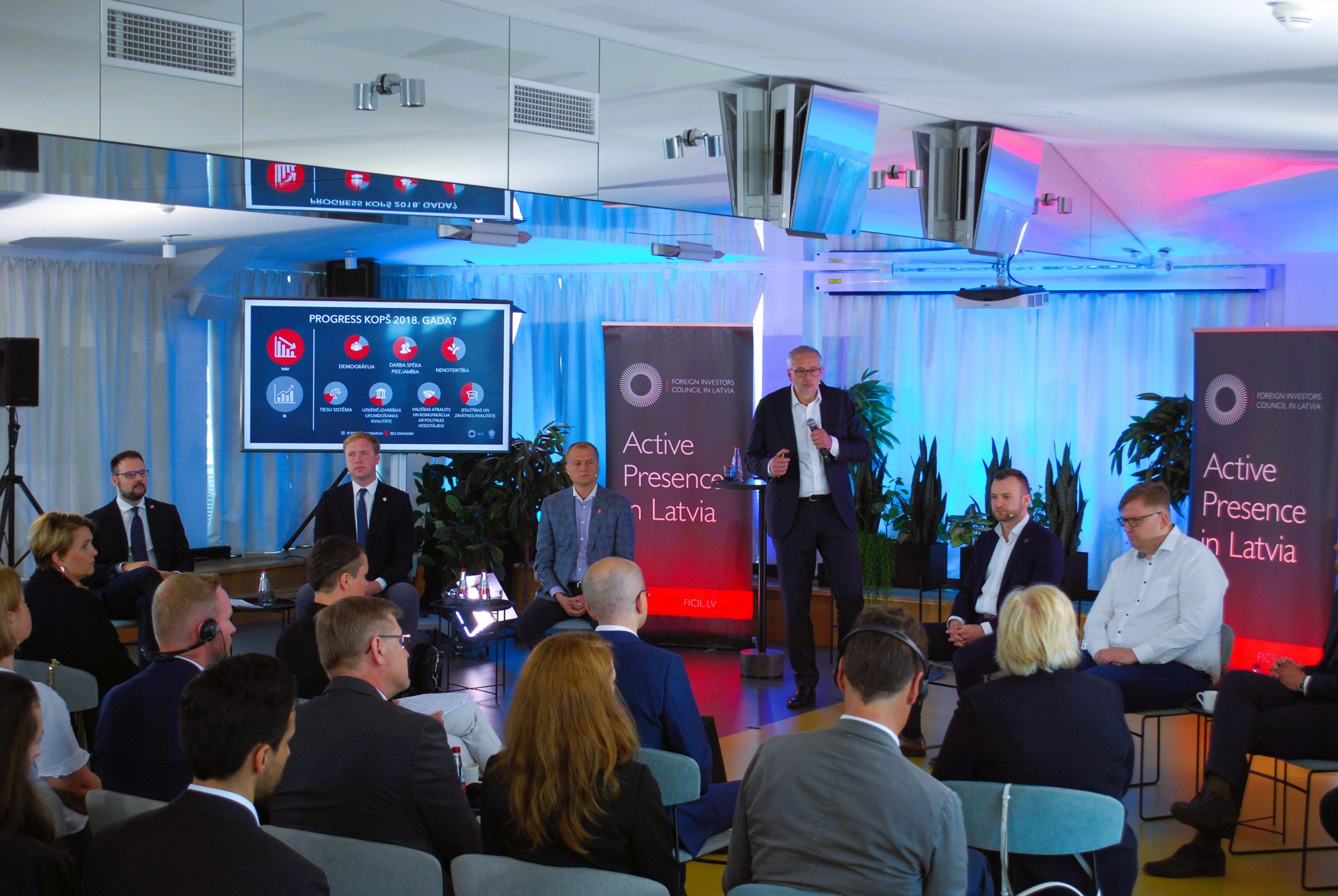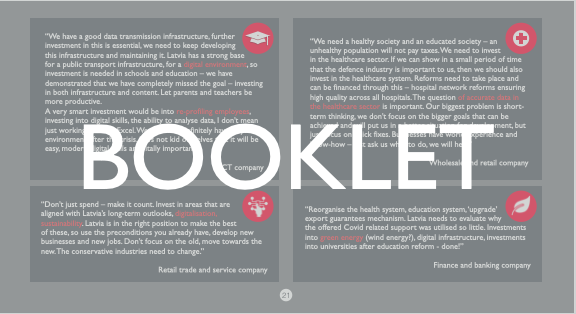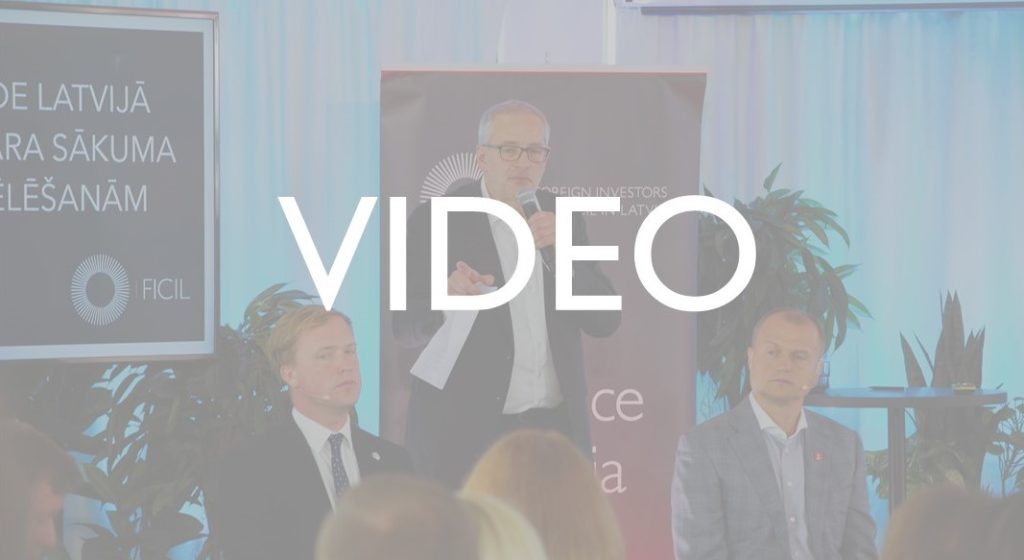Foreign investors rated the investment climate in Latvia in the last 4 years as average, as concluded in the “Sentiment Index 2021: Election Edition” research by Foreign Investors’ Council in Latvia (FICIL) and Dr. Arnis Sauka from the Stockholm School of Economics in Riga (SSE Riga). In preparation for the upcoming Latvia’s Parliament elections the research asked foreign investors to reflect on the work done by policymaker over the last 4 years. Investors assessed both the investment climate and policymaker efforts to improve the investment climate over the 4-year period as average with a rating of 2.9 points out of 5.
Investors were asked to name positive and negative decisions of policy makers over the last 4 years. As some of the best decisions investors mentioned:
- Financial sector reform
- Higher education reform
- Specific aspects of tax reform (introduction of zero tax on reinvested profit)
- Administrative territorial reform
However, as some of the worst decisions, investors mentioned mostly lack of certain action by policy makers:
- Lack of progress regarding workforce availability
- Effectiveness of public sector
- Lack of consequential decisions by policy makers
- Lack of strategy to achieve EU’ Green Deal aims.
“One of the key aims of the FICIL Sentiment Index is to evaluate the progress achieved to improve the investment climate in Latvia, each year the study serves as a temperature measurement to assess the most pressing issues and solutions. Because Saeima elections will be held this year, the newly published study will serve as a roadmap to new policymakers on how to improve Latvia’s business environment and attract more foreign investment. As the research points out, investors positively assess both the financial sector reform and the higher education reform, that, hopefully, in the long-term will have a positive effect. Nevertheless, investors will carefully follow actions taken by politicians to address the most pressing issues such as workforce availability, rising energy prices, implementing EU’s Green Deal etc., as solving these issues will require close cooperation among public sector institutions. Will politicians continue to work in crisis regime and look for short-term solutions to the current problems, or will they work to create long-term policies?” outlined Zlata Elksniņa-Zaščirinska, Country Managing Partner at PwC Latvia and Chairperson of FICIL Board.
Next Saeima priorities – energy, security, and workforce availability
Considering the geopolitical impact of Russia’s invasion of Ukraine, at the end of May FICIL asked the same foreign investors few additional questions to better understand the impact Russia’s invasion of Ukraine has on their investment plans and future priorities.
“The data confirms that at large Russia’s invasion of Ukraine has not had significant impact on company investment plans – when war began some companies paused or reduced their investments, but this was only a temporary response and by now most companies have resumed almost all their planned investments. In the context of improving the investment climate of Latvia, company representatives see growing inflation, energy independence, workforce availability and security as the biggest challenges. However, as next Government’s and Saeimas priorities investors see – energy independence, security of the country, workforce availability and increasing workforce requalification and public sector transformation” comments Dr. Arnis Sauka, author of the FICIL Sentiment Index 2021: Election Edition.
Investors rate the current Governments efforts to implement EU Green Deal strategy in Latvia as below average, giving it only 2,2 points out of 5. To improve, investors recommend the Government adopts a clear plan and sets a distinct governance over implementing the Green Deal strategy in Latvia. Moreover, there is a greater need to involve experts, to educate society, private and public sector, set clear key performance indicators and make data-based decisions.
Foreign investors plan to continue investing in Latvia
The study shows that two thirds (65%) of the foreign investors interviewed are planning to increase their investments in the upcoming years, this is 3% less than the previous year, however, 10% more than in year 2018. However, about one fifth (20%) of the respondents will not increase their investment while 15% indicated that this question is still undecided and will depend on various factors. In May 2022, the study asked the same question to foreign investors following Russia’s invasion of Ukraine, 83% of the respondents admitted that their represented company does not plan to change its investment plans, while 17% of the respondents noted that their company’s investment plans have been suspended or reduced. Similar to 4 years ago, the issue of human capital availability and skills is one of the most important factors when a company is deciding to continue investing in Latvia.
FICIL held a Sentiment Index 2021: Election Edition presentation event on 13th of June 2022. During the event political party representatives, investors and the present guests discussed and debated the results. The event was moderated by journalist Jānis Domburs.
About FICIL Sentiment Index 2021: Election Edition
In 2021/2022 FICIL together with Dr. Arnis Sauka from SSE Riga carried out its seventh consecutive Sentiment Index research. Since 2022 is an election year in Latvia, this Sentiment Index research focused on progress achieved over the last 4 years, not only 12 months. In addition to the usual topics, the research also provides the investors’ viewpoint on the EU Green Deal implementation process, as well as priorities for the Government and Parliament in regard to the changing geopolitical situation. Executives from 53 companies participated in the interviews, representing key foreign investors in Latvia. Altogether, these companies (including their subsidiaries) contribute to 25% of Latvia’s total tax revenue and employ 15% of the total workforce of companies with an annual turnover above 145 000 EUR and 50% foreign capital.







